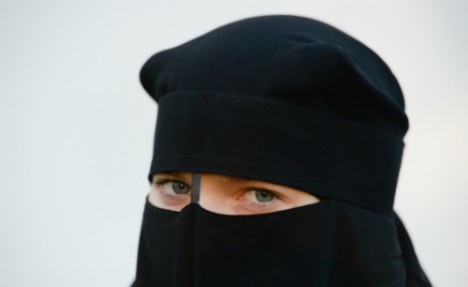A restaurant owner in western Germany has been accused on social media of racism after he threw a Muslim woman wearing a niqab out of his establishment.
Last Saturday the woman went to the Seekrug restaurant, which lies on the Obersee lake in Bielefeld, to watch a light show, the Rheinische Post reports.
She was one of around 3,000 guests who had come to watch the event.
But when proprietor Christian Schulz noticed that she was wearing a niqab, a conservative Muslim garment which covers the whole body except the eyes, he asked her to remove her face veil.
Schulz told the paper that the woman then immediately started insulting him and left the premises.
After word spread of the incident, a frenetic debate erupted on the restaurant’s Facebook page, with detractors describing Schulz as a racist.
“It’s pretty crazy what’s been written about us, even the staff have been insulted,” Schulz told the RP.
The restaurateur defended his actions against accusations of racism, saying “in times like these such a request isn’t unreasonable at such a big event.”
But many Facebook commentators also praised Schulz for what they described as “his courage.”
“We need more people like you who set down clear rules and stick up for our values,” one wrote.
The wearing of the niqab or burqa in public has become a highly debated topic in Germany in recent weeks, following two terror attacks carried out by people linked to Islamist terror group Isis that took place in July.
The conservative ruling party in Bavaria, the Christian Social Union (CSU), has called for a complete ban on the face veil in public spaces – just one of many controversial measures the CSU want passed into law which they allege would improve security in Germany.
Interior Minister Thomas de Maiziere has also said that he is in favour of a ban in certain public spaces, such as universities, schools and courts.
Chancellor Angela Merkel though, speaking to the Bundestag (German parliament) on Wednesday, said that respecting religious freedom also meant accepting a woman’s choice to cover her face in public.
However, she also said that she felt face veils were a hindrance to integration.




















